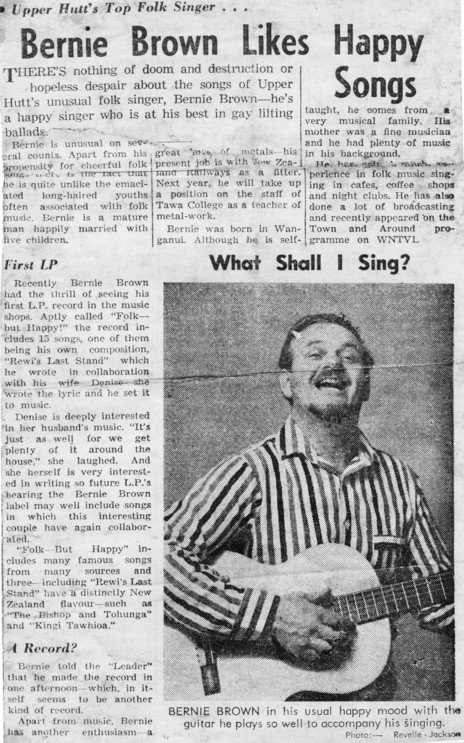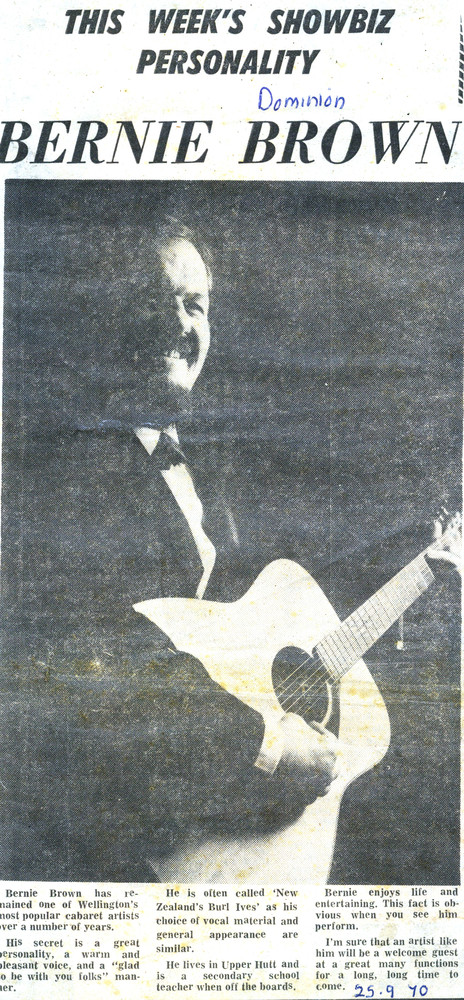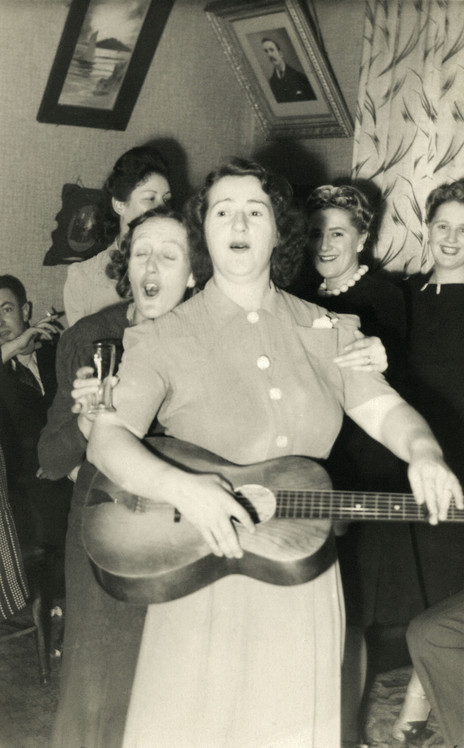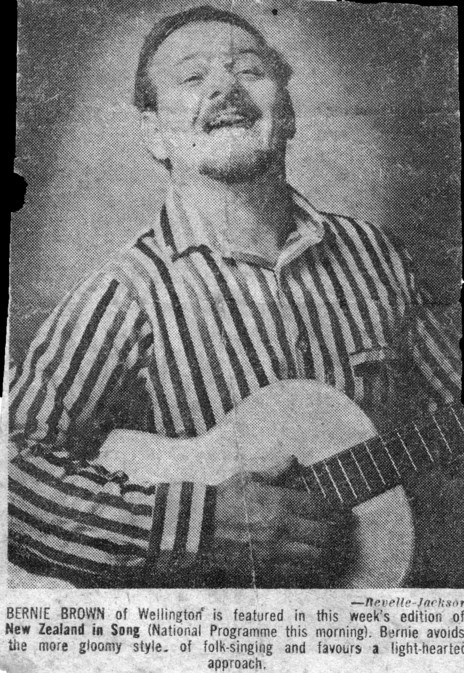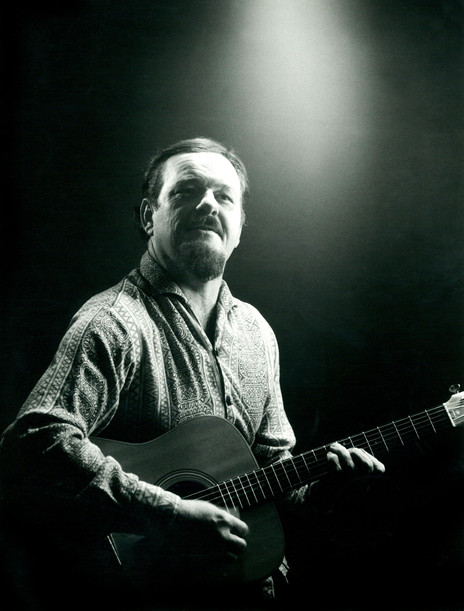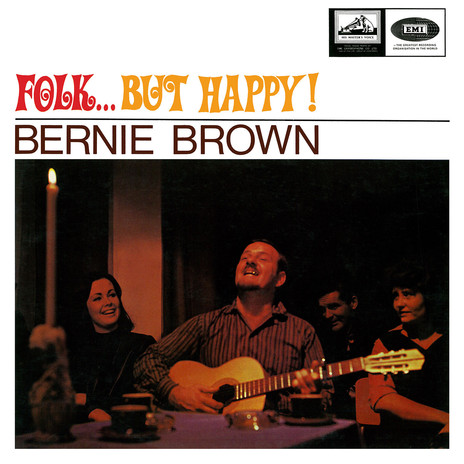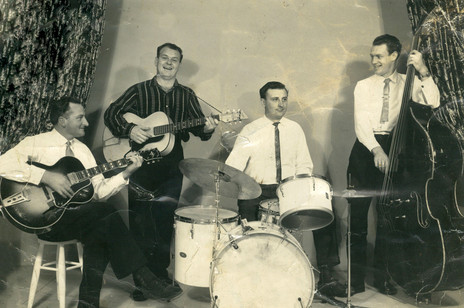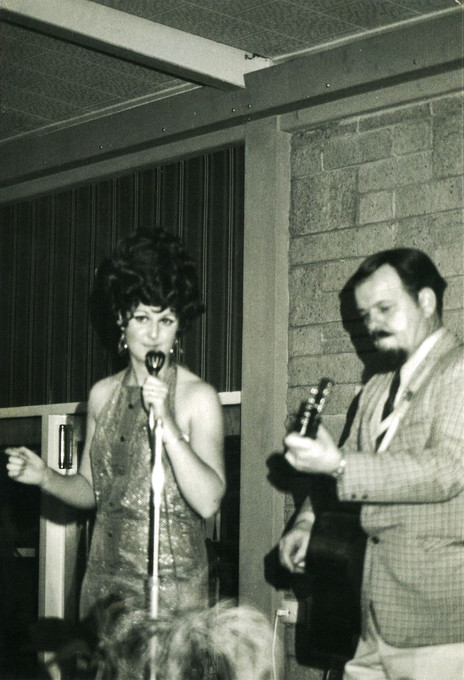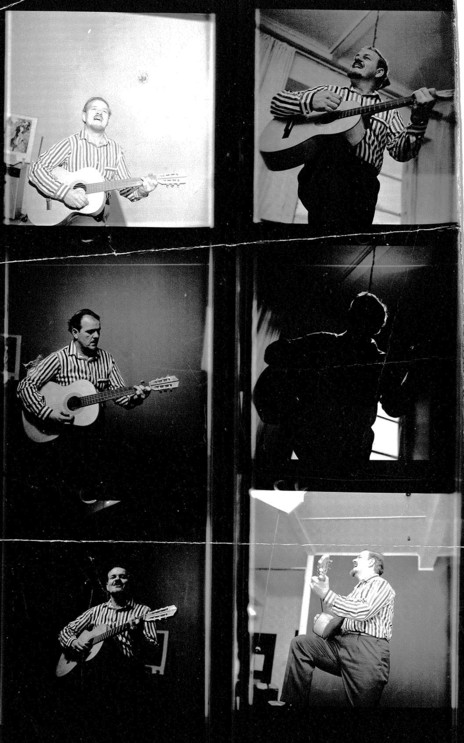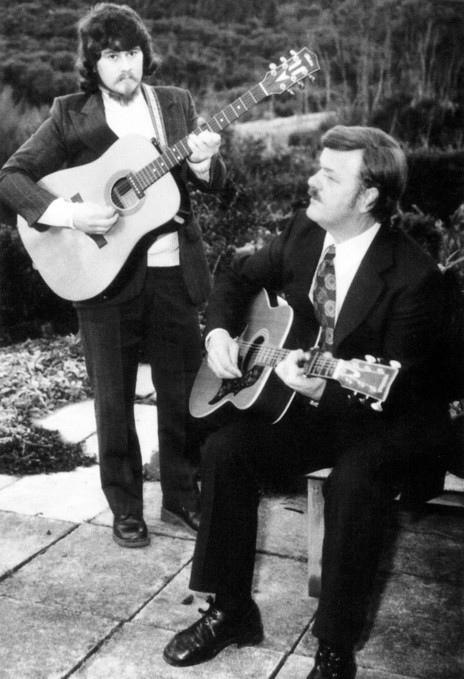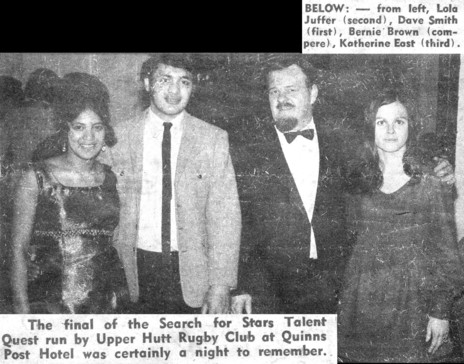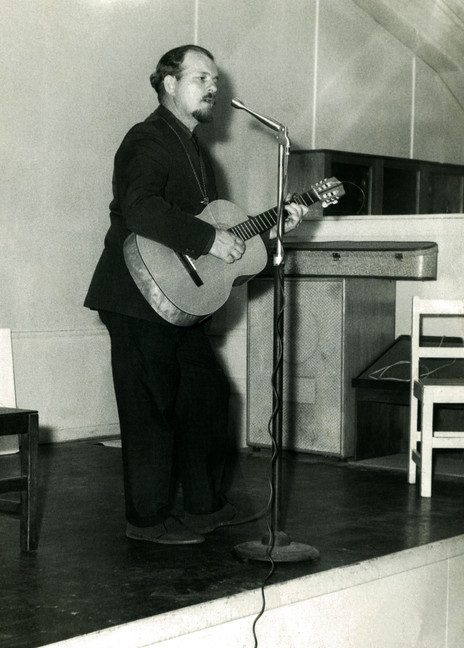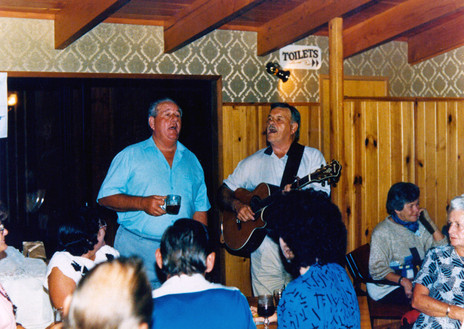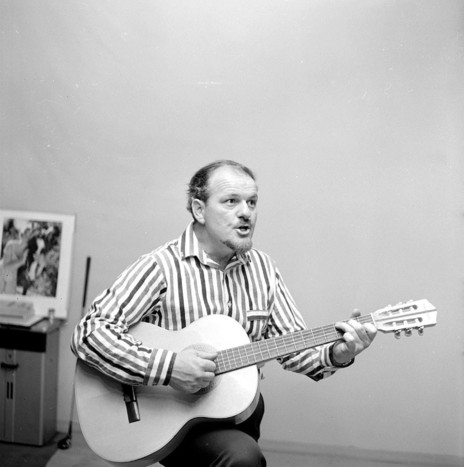Brown was born in 1928 and grew up in Whanganui, although son Stefan (of Stacey Grove and Ebony fame) thinks there’s a strong likelihood Bernie’s forbears were from the Kaipara Harbour region.
Brown’s family were all musical and had him singing and playing from a very early age – reputedly making his stage debut at just five years old alongside his sister and two brothers and accompanied by mum on steel guitar. Bernie never learned to read music, learning instruments by watching others and playing along to records.
Once out of school Bernie settled in New Plymouth, marrying and eventually having five children. He was heavily influenced in his musical tastes by the American folk revival of the late 1950s and early 1960s. His record collection featured artists such as the Kingston Trio, Harry Belafonte, Jim Reeves and his personal favourite, Rod McKuen.
With television yet to reach New Zealand, neighbourhood gatherings were a common occurrence. Stefan Brown recalls his parents hosting numerous musical get-togethers at their house. “Often these would go on all night with various relatives, friends and neighbours, playing fiddles, guitars and piano accordions.”
Bernie was a regular performer at the region’s many Savage Clubs. Founded in Britain in 1857 and named after obscure poet Richard Savage, the Savagery movement, as it was known, was established in New Zealand in the 1880s. It spread quickly around the country and was particularly well represented in Taranaki, with clubs in Eltham, Waitara, Stratford, and Hawera. One of the aims of the movement was to “provide rational entertainment and good fellowship, and to develop and encourage latent talent in any form among its members, be it vocal, musical, acting or any other of the liberal arts.”
Stefan Brown remembers his father singing at these clubs, or other social clubs and halls most weekends during his childhood, with as many as three gigs per weekend.
“Me and my brothers and sister often accompanied Dad. Of course us kids weren’t allowed inside these places during the two hours or so Dad was on stage. We were made to wait in the car outside with plenty of rugs to keep warm. Dad would bring us a raspberry and lemonade halfway through the evening, but naturally we couldn’t resist sneaking out for a look through the windows.”
Bernie regularly performed New Zealand compositions and was particularly fond of the songs of Peter Cape.
Stefan Brown recalls a strong Māori representation in the Savage Clubs. “In a way the clubs helped to connect Māoridom. Dad was right at home in this environment, fluent enough in Te Reo Māori to deliver the occasional mihi or whaikōrero. Being adept on guitar and ukulele could join any combo to sing along.”
Although enamoured of the American folk tradition, Bernie regularly performed New Zealand compositions and was particularly fond of the songs of Peter Cape – ‘Down The Hall On A Saturday Night’, with its references to “Sheilas cutting the supper”; “great big bunch of jokers hanging ‘round the door”; and “Joe from the store on the drums” – obviously vividly descriptive of his own experiences.
Bernie’s relentless live performances gained him a strong local reputation with constant demand for his singing and playing. Following his own childhood tradition Bernie sometimes had his own family performing with him – wife Denise on piano, and sons Stefan, Jeff and Glen, and daughter Virginia joining Dad on stage.
Marama Koea (later Martin) of New Plymouth radio station 2XP was a huge fan and corralled Bernie and family to appear at the 2XP “Hootenanny” at the Bowl of Brooklands, a festival of mostly folk and country music. Stefan recalls harmonising at this show on such songs as ‘There’s A Meeting Here Tonight’, ‘Doing It In Style’, ‘Home On The Range’, and ‘Goodness Gracious Me’. Koea also had Bernie regularly performing on air at 2XP.
Whilst Bernie was paid for his performances, he passed up opportunities to turn fully professional, choosing instead to devote his life to ensuring stability for his family. By day he was a fitter and turner with New Zealand Railways. Naturally Bernie was drawn to songs about trains and had a life-long love of steam trains. Tracks such as the Kingston Trio’s ‘M.T.A.’ and Huddie Ledbetter (Lead Belly)’s ‘Rock Island Line’ were regulars in Bernie’s live repertoire.
In the early 1960s Bernie was offered employment at Heretaunga College in Upper Hutt and moved his family there, taking up a position as a teacher of maths, woodwork, metalwork and tech drawing. He also took extracurricular classes teaching guitar, and was by all accounts a popular teacher with the pupils. His departure from New Plymouth was noted with sadness in the Taranaki Daily News.
In the greater Wellington area Bernie was delighted to find a burgeoning folk music scene, with several well-established folk cafes and clubs in Wellington itself. Brown soon found himself in regular demand at venues in Lower Hutt and at Mary Seddon’s Monde Marie and the Chez Paree in Wellington.
An EMI A&R rep spotted him performing at the Monde Marie and offered him the opportunity to record an album for HMV.
An EMI A&R rep spotted him performing at the Monde Marie and offered him the opportunity to record an album for HMV. Although not listed on the sleeve it’s likely Nick Karavias produced the album, recorded at the HMV studios in Wakefield Street in 1965. Entitled Folk… But Happy!, and accompanied by Bill Hoffmeister on guitar and Brian Hands on double bass, Bernie covered some of his favourite folk songs, including three tracks by Rod McKuen and two by Bob Dylan. Of particular note are the tracks ‘Rewi’s Last Stand’ for which Bernie’s wife Denise (an accomplished poet and published author in her own right) wrote the lyrics, and ‘The Bishop And The Tohunga’ by acclaimed New Zealander songwriters Ashley Heenan and Willow Macky. Bernie also recorded two six-track EPs, entitled Singing Games And Dances For Infants, with Margaret Greenway for Kiwi-Pacific records.
Bernie’s popularity attracted offers to tour overseas – an extensive tour of Australia with Tex Morton and others further afield to New Caledonia and the USA, but he always turned them down, claiming they would keep him away from his family for too long.
In 1967 Bernie was invited to participate in a series of seven 15-minute radio programmes made by The Overseas Programme Exchange Service entitled “New Zealand In Song”. The series was recorded to showcase New Zealand folk singers singing songs about New Zealand. Other artists featured in the series included veterans of the New Zealand folk scene such as The Yeomen, Pat Rogers, Phil Garland, Arthur Toms and Woody Woodhouse. The Garth Young Trio accompanied Bernie’s tracks. The series has been preserved and can be accessed via the Nga Taonga Sound Archives.
Bernie’s outgoing personality also created a demand for his services as a compère and he was a regular host of talent competitions and other events in the Hutt Valley throughout the 1970s.
Bernie sadly passed away in 1990, aged only 62. He could be said to have epitomised an era in New Zealand, now largely disappeared, where music was often made with family and friends for the sheer joy of it and was commonly heard “down the hall on a Saturday night”.
